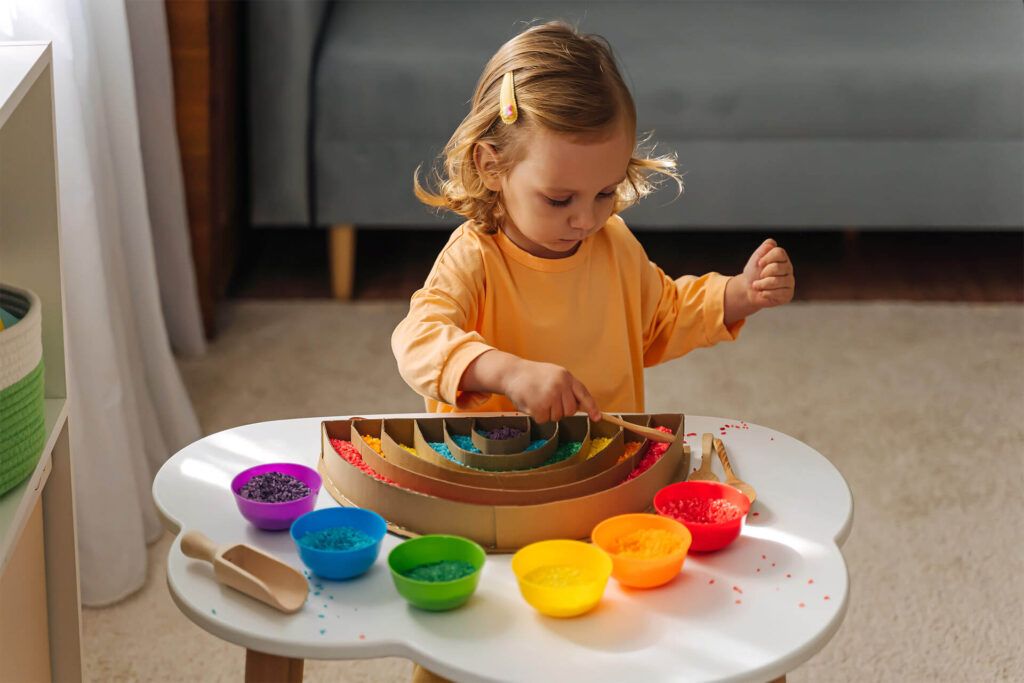“Jenny is a pleasure to have in the classroom, but she forgets her assignments often and gets distracted easily. She may fail science” You’re shocked after getting this feedback from your child’s teacher. You’ve never had a complaint about her behavior, and you know she’s smart. What is happening?
If you’re like most parents, it’s likely that when you hear “ADHD” you immediately think of a kid with a lot of energy that is hard to control, but it’s not as simple as that, so let’s break it down.
ADHD has two main symptoms: inattention and hyperactivity-impulsivity, but they don’t always come as a package
- Inattention: Children with inattentive ADHD get easily distracted. They might make careless mistakes, lose things often, or just “space out”. Because they lack hyperactivity, it is likely that you have never heard complaints about your child’s behavior but are instead puzzled by their disorganized behavior or poor grades despite being a bright child.
- Hyperactivity-Impulsivity: You might notice your kid constantly on the move—fidgeting, running around, or talking a mile a minute. They might also have trouble waiting their turn or blurting out answers without thinking.
The Evaluation Journey
Alright, so you’re starting to see some of these signs. What’s next?
- Tell your pediatrician: The best person to go to for any changes in your child’s health and behavior is your child’s pediatrician. They’ll help you rule out other health issues that could be causing similar symptoms. In some cases, your pediatrician may be able to diagnose ADHD and start treatment, or they may refer you to a specialist like a Developmental & Behavioral Pediatrician, Pediatric Psychologist, or Child Psychiatrist.
- Gather information: Get ready for some paperwork. After ruling out other problems, your doctor will collect information about your child’s behavior with some questionnaires. If your child is in school, the doctor will request information from the teacher too. Getting as much information as possible about your child’s behavior in different situations is important for the diagnosis. The more perspectives, the clearer the picture.
- Referral to a specialist: In some cases, your pediatrician may refer you to a specialist for more testing and treatment. While there’s no single test for ADHD, the specialist will evaluate your child’s overall development to establish a diagnosis and create a treatment plan that works for you and your family.
Why Early Diagnosis of ADHD Matters
Catching ADHD early means you can start figuring out how to help your kid build the skills they are lacking sooner rather than later.
By getting a handle on ADHD early on, you can help your kid avoid some of the common struggles that come with the territory—like falling behind in school, feeling down about themselves, or struggling with long-term friendships.
How ADHD is Treated
The treatment of ADHD has different moving parts. The ultimate goal is always the same: skill building. This can be done using different tools used alone or in combination:
- Behavioral Interventions at home and in the classroom: Your doctor will discuss different strategies to implement at home to help your child build the skills they lack so they can show the best version of themselves
- Classroom accommodations: All children are unique and learn in different ways. This is especially true for children with ADHD. Small things like seating at the front of the classroom and movement breaks can be of tremendous help.
- Medication: Some children may need extra help if behavioral interventions alone have not been successful. This is where medication comes in as a short or long-term measure, depending on the severity of the challenges. Your doctor will do a check-up and help you decide which medication would be the best fit for your child.
Do you have a child that needs an evaluation?
Let’s start the journey and help your child reach their unique potential




